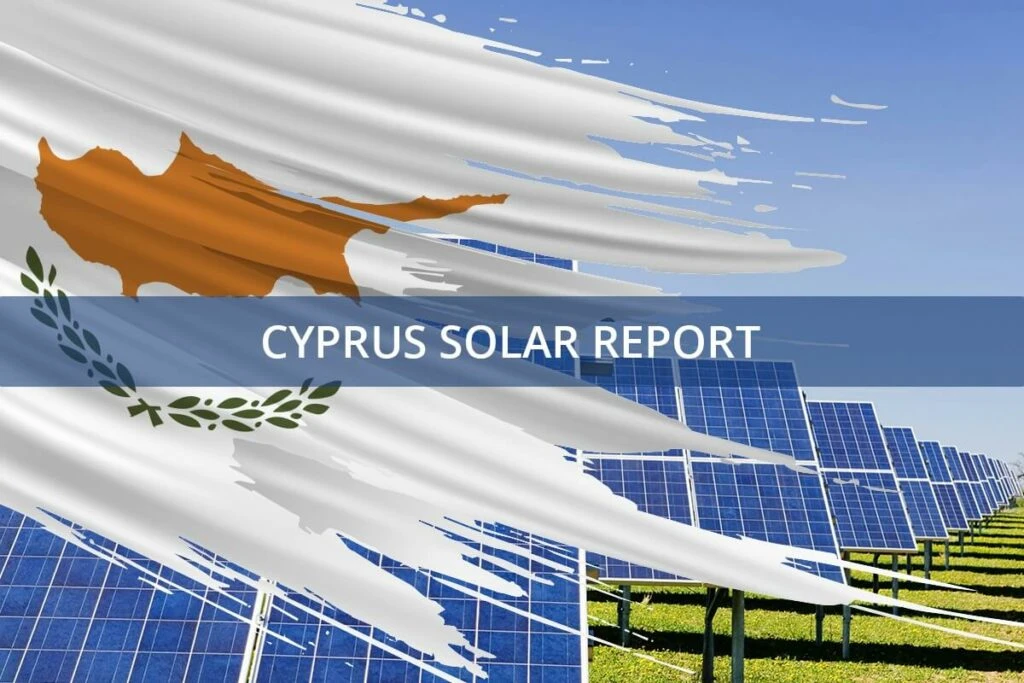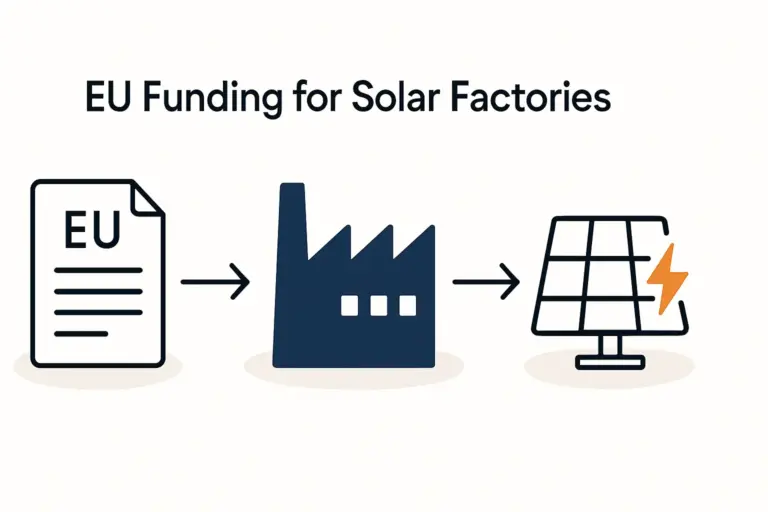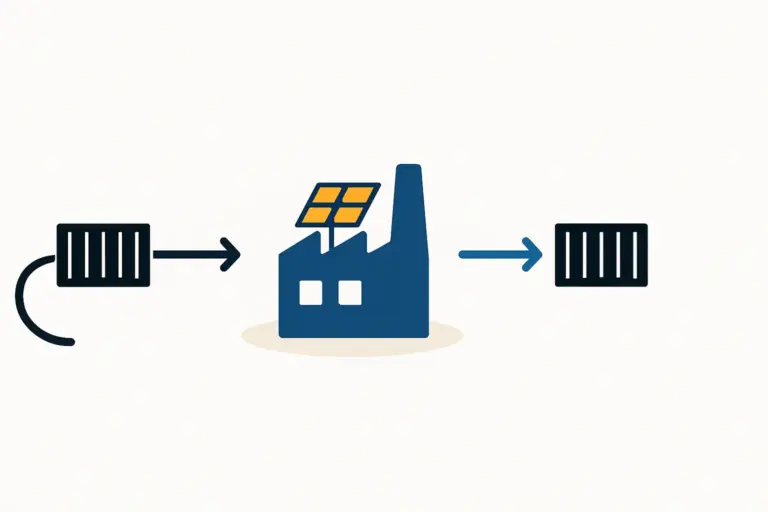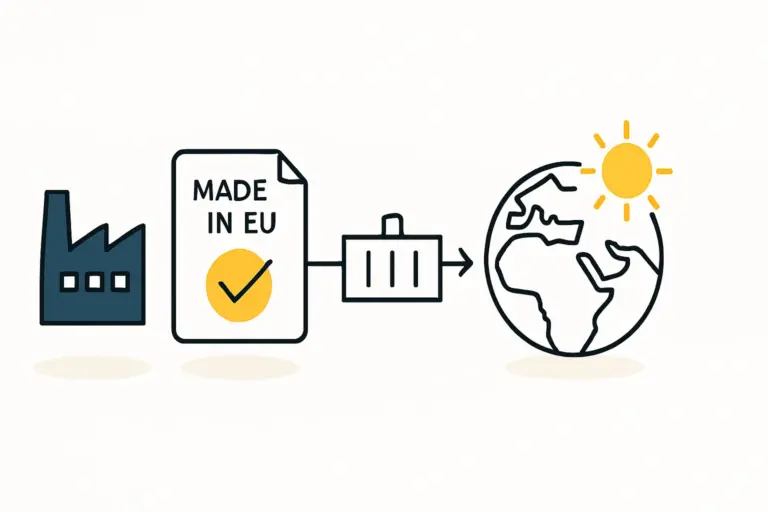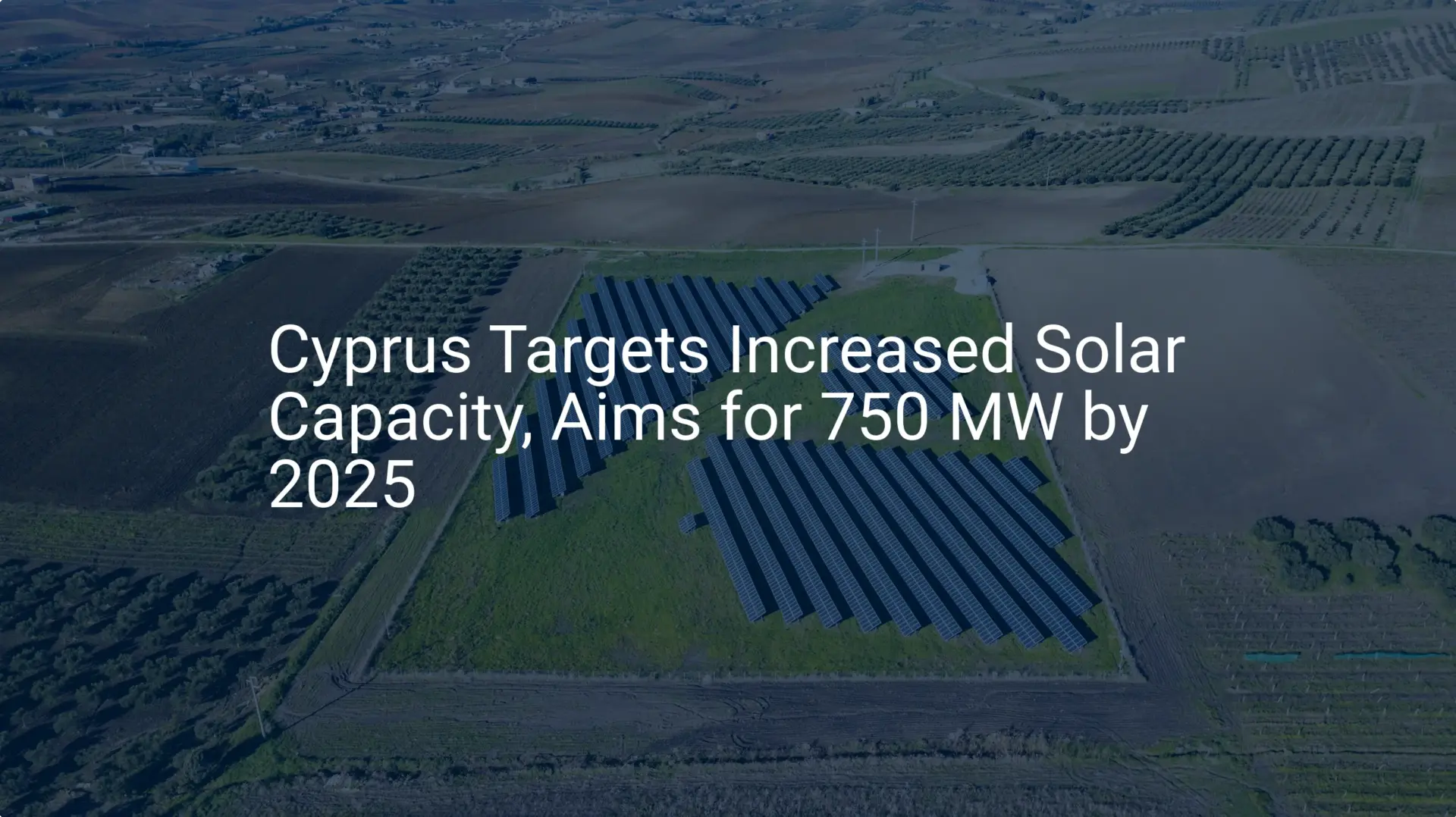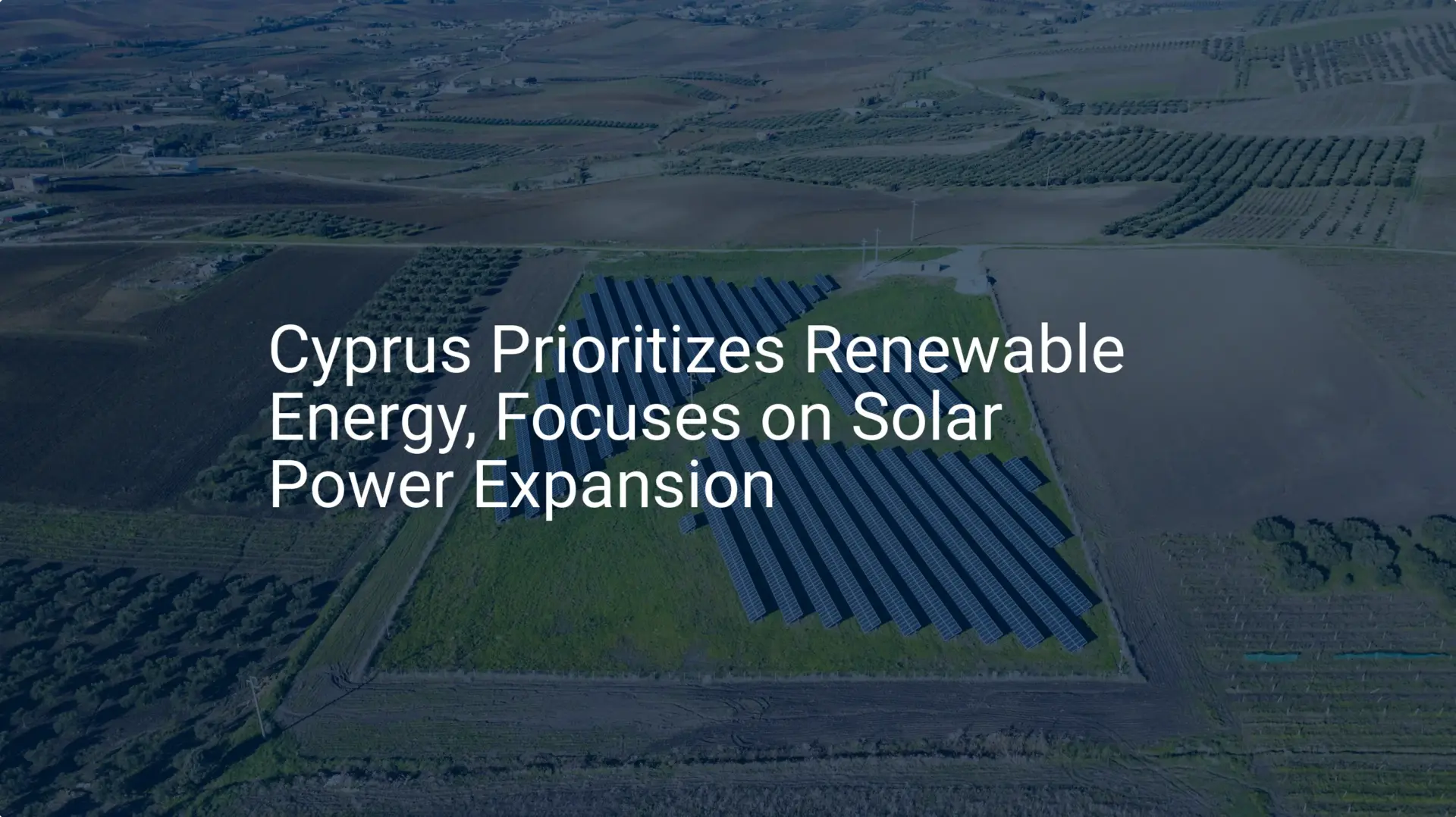An investor considering a new manufacturing venture often focuses first on machinery and capital. Yet experience shows that the long-term success of a solar module production facility hinges just as much on the quality and skill of its workforce.
For entrepreneurs eyeing Cyprus as a potential base, the question of labor is particularly pressing. The island offers a unique landscape: a highly educated population within a largely service-oriented economy.
This article provides a strategic overview of how to build a skilled technical workforce for a solar production line in Cyprus. We will examine the local labor market, opportunities for institutional collaboration, and effective training methodologies—all critical components of the technical and business planning process.
Understanding the Cypriot Labor Market: Potential and Specifics
At first glance, Cyprus might not seem like a traditional manufacturing hub. Its economy is heavily weighted towards finance, tourism, and professional services. However, a closer look reveals several strategic advantages for an investor willing to develop local talent.
A Highly Educated but Untapped Talent Pool
Cyprus has one of the most educated populations in the European Union. In 2021, its tertiary education attainment rate for individuals aged 25-34 stood at 58.8%, significantly above the EU average. While many of these graduates enter the service sector, this high level of education points to a workforce with a strong capacity to learn complex technical processes.
The challenge, therefore, is not a lack of capable individuals, but channeling their abilities into a manufacturing context through structured training.
Transferable Skills from Existing Industries
While large-scale industrial manufacturing is not dominant, Cyprus has an established base of small and medium-sized enterprises in sectors like pharmaceuticals, food processing, and electronics assembly. This has created a pool of technicians and line operators already familiar with the core concepts of a production environment, such as:
- Adherence to quality control protocols
- Operating automated machinery
- Working in structured, process-driven teams
- Basic maintenance and troubleshooting
These foundational skills are directly transferable to a solar module factory, significantly reducing the initial training curve. The primary task becomes teaching the specifics of photovoltaic technology, not the fundamentals of manufacturing itself.
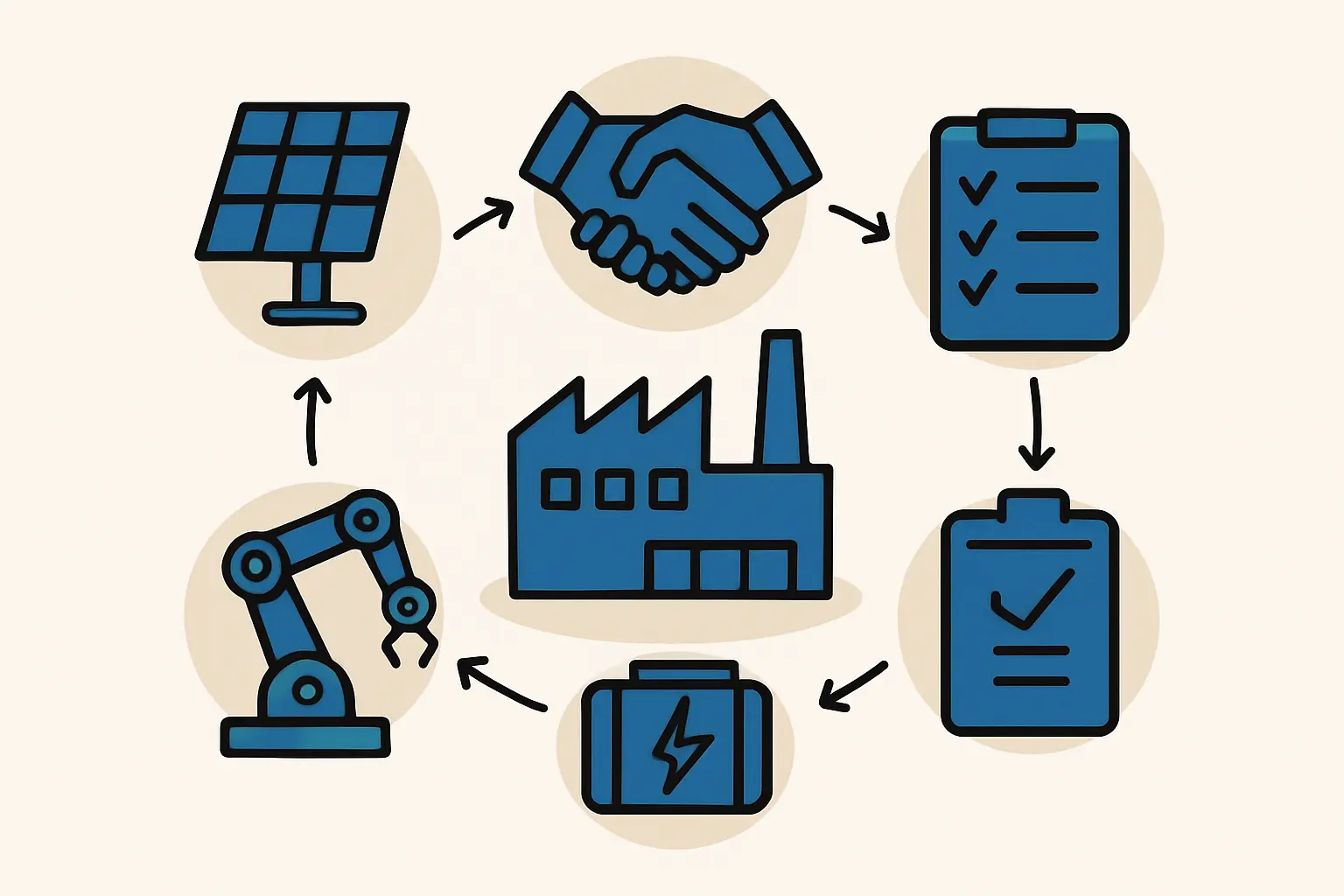
The EU Advantage: Freedom of Movement
As a member of the European Union, Cyprus benefits from the free movement of labor. Should specific, highly specialized roles prove difficult to fill locally, a business has direct access to the wider EU talent pool. This provides a valuable fallback, enabling the recruitment of experienced engineers or technicians from countries with more established solar manufacturing sectors—such as Greece, Romania, or Bulgaria—to lead key departments or spearhead initial training.
Collaborating with Local Institutions for High-Caliber Talent
A key strategy for securing long-term technical talent is to build relationships with Cyprus’s academic and research institutions. They are not just sources of graduates; they can become active partners in workforce development.
The University of Cyprus and the Cyprus University of Technology both have robust engineering faculties with programs relevant to renewable energy. The FOSS Research Centre for Sustainable Energy at the University of Cyprus is also a leading R&D hub in the region.
Collaboration can take several forms:
-
Graduate Recruitment: Directly sourcing graduate engineers for roles in quality control, process engineering, and R&D.
-
Internship Programs: Establishing partnerships to offer final-year engineering students practical experience on the production floor. This creates a direct pipeline of talent already familiar with the company’s operations upon graduation.
-
Curriculum Consultation: Working with faculties to ensure their curriculum includes modules relevant to modern PV manufacturing, creating a future workforce that is even better prepared.
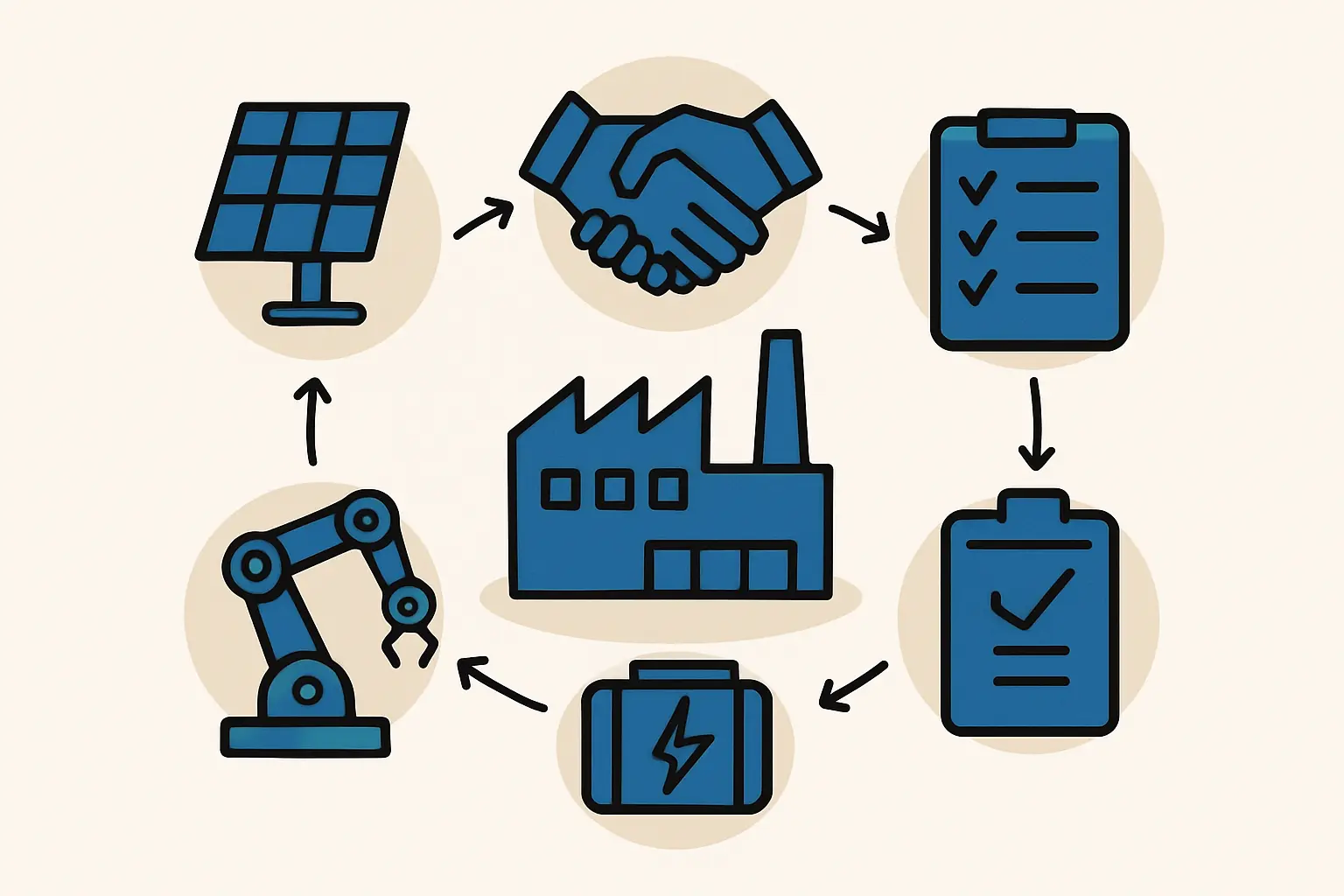
A Structured Approach to Workforce Training
In a market like Cyprus, the most effective strategy is not to search for pre-existing solar experts, but to create them. A systematic, multi-stage training program is essential for transforming motivated local talent into a high-performing production team. As experience from J.v.G. Technology GmbH projects confirms, a well-designed training plan is the cornerstone of a successful turnkey factory setup.
A typical program for a machine operator or technician lasts two to three months and involves several distinct phases:
-
Phase 1: Classroom Theory (2-3 Weeks): This foundational stage covers the principles of photovoltaics, materials science (glass, EVA, backsheets), safety protocols, and quality standards (e.g., ISO, IEC).
-
Phase 2: Machine-Specific Training (3-4 Weeks): Led by expert trainers, often provided by the machinery supplier or a consultant, this phase focuses on the hands-on operation of each piece of equipment in the solar module manufacturing line—from the stringer and laminator to the final tester.
-
Phase 3: On-the-Job Supervision (4-6 Weeks): New operators work on the line under the close supervision of experienced trainers or a production manager. This phase is critical for building confidence, refining technique, and learning to troubleshoot minor issues in a live production environment.
This phased approach ensures that employees not only learn how to operate the machinery but also understand why each step is performed, leading to a more engaged and quality-conscious workforce.

Leveraging Government Support and Incentives
The Cypriot government actively encourages investment in green technologies and workforce upskilling. The Human Resource Development Authority of Cyprus (HRDA) is a key organization providing schemes and subsidies for employee training.
Engaging with the HRDA can offer significant financial benefits, potentially covering a portion of training program costs. These incentives are designed to promote sectors considered vital for the country’s economic future, including renewable energy manufacturing. Incorporating these subsidies into the initial business plan can strengthen financial projections and reduce upfront operational costs.
Frequently Asked Questions (FAQ)
Do I need to hire staff with prior solar panel manufacturing experience?
Not necessarily. While prior experience is beneficial, it is rare in markets without an established solar industry. A more reliable and cost-effective strategy is hiring individuals with strong technical aptitude and a background in general manufacturing, then investing in a comprehensive, structured training program.
How long does it take to train a machine operator?
A fully proficient machine operator can be trained in approximately three months through a phased program of theory, machine-specific training, and on-the-job supervision.
What is the main advantage of Cyprus’s workforce for a solar factory?
The primary advantage is the high level of general education and adaptability, which creates a workforce that can quickly learn and master complex technical processes within a structured training environment.
Can I bring in expert trainers from abroad to start the facility?
Yes, this is a highly recommended and common practice. Bringing in a small team of experienced trainers for the first 6 to 12 months is crucial for establishing best practices, training the initial group of local staff, and ensuring production quality from day one.
Conclusion: Your Workforce as a Strategic Asset
For the discerning investor, the Cypriot labor market presents not a challenge, but a strategic opportunity. The combination of a highly educated population, transferable skills from existing industries, strong academic institutions, and supportive government incentives creates fertile ground for developing a world-class manufacturing team.
By shifting the focus from finding ready-made experts to a deliberate strategy of sourcing, training, and developing local talent, a company can build more than just a factory. It can cultivate a loyal, skilled, and capable workforce that becomes a sustainable competitive advantage in the European and global solar markets.

